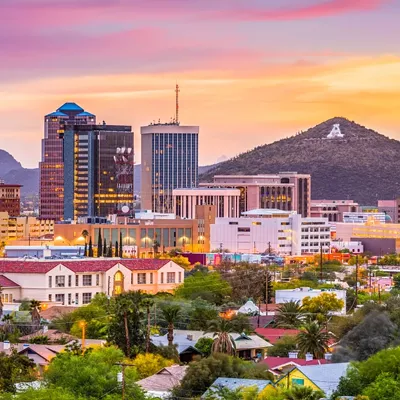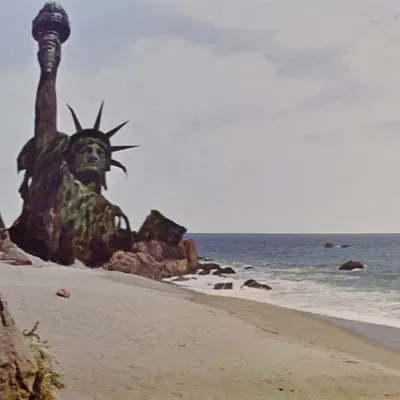We don't have too many counterparts pushing wildlife toward the margins of the Arctic tundra; nevertheless, human activities, even right here in Arizona, are wreaking havoc on the polar bear's homeland. As we burn through fossil fuels, the polar icecaps melt, and habitat loss necessarily follows.
In 2005, the Tucson-based Center for Biological Diversity demanded the polar bear's addition to the Endangered Species List. The Department of Interior dragged its feet, and it wasn't until a lawsuit and a deadline from a federal judge that the polar bear was finally listed as a "threatened" species in May. And if the Bush administration can admit it, then so must we all.
The polar bear's "threatened" status is not typical. While the habitats of most endangered species can be preserved by land-use limits in their native ranges, polar bears represent the effect that climate change has in far-flung places, where habitats can be destroyed even where human presence is relatively minimal.
While we all understand the direct impact we have on our local ecosystem, it's more difficult to make a connection between our thermostat settings and the fate of a distant creature. But before I inevitably cave to the heat and activate my beloved air conditioner, I'll be thinking of polar bears swimming amid melting ice floes thanks in part to the coal-burning facility that provides energy to Tucson.
A difference of a few degrees in temperature might not seem like a big deal, but Tucsonans can definitely distinguish between 105 and 110. While this is a matter of comfort for us, in the Arctic, these few degrees can be deciding factors between ice and water, habitat and no habitat.
The pro-business Bush administration has steadfastly refused to address climate change, as this would entail enforcing greenhouse-gas-emissions caps. The business sector is resistant to anything that smacks of regulation, and the corporate world is already hard at work designing a defense.
One planned corporate lawsuit will frame the issue of increased regulations as one of economic and racial injustice, claiming that minorities and the poor will disproportionately shoulder the costs of improved environmental standards in the form of higher gas and heating bills. Corporations care about the poor? I guess I was asleep when they announced living wages for all workers.
If pro-business propagandists are successful in tapping into fears over the economy, the general public might come to equate emissions regulations with higher gas prices. Never mind that petroleum is a finite resource that will continue to rise in cost, and the only real way to save money on gas is to use less of it.
Enforcing emissions caps will not harm the economy. In fact, ensuring that the planet will continue to support billions of humans seems like a pretty pro-economy stance to me. And with that in mind, we here in the Sonoran Desert need only turn our heads upward to find a solution--both for the economy and the environment. Even when the Arctic is thrust into its annual sunless winter, in Arizona, solar power will have the potential to supply us with an abundance of sustainable energy. An entire industry can grow around this power source.
Congresswoman Gabrielle Giffords is already advocating solar power, with hopes for Arizona to be the solar capital of the nation. With f actories based in Southern Arizona, we could become a hotspot in a field that will inevitably expand while providing quality jobs for engineers and other workers.
Environmentalism and a strong economy don't have to be mutually exclusive. The corporate dinosaurs might fear change, but that doesn't mean you have to. Dinosaurs are long gone, but the polar bears are still here--and by rallying around solar power, even Arizonans can help their cause.










